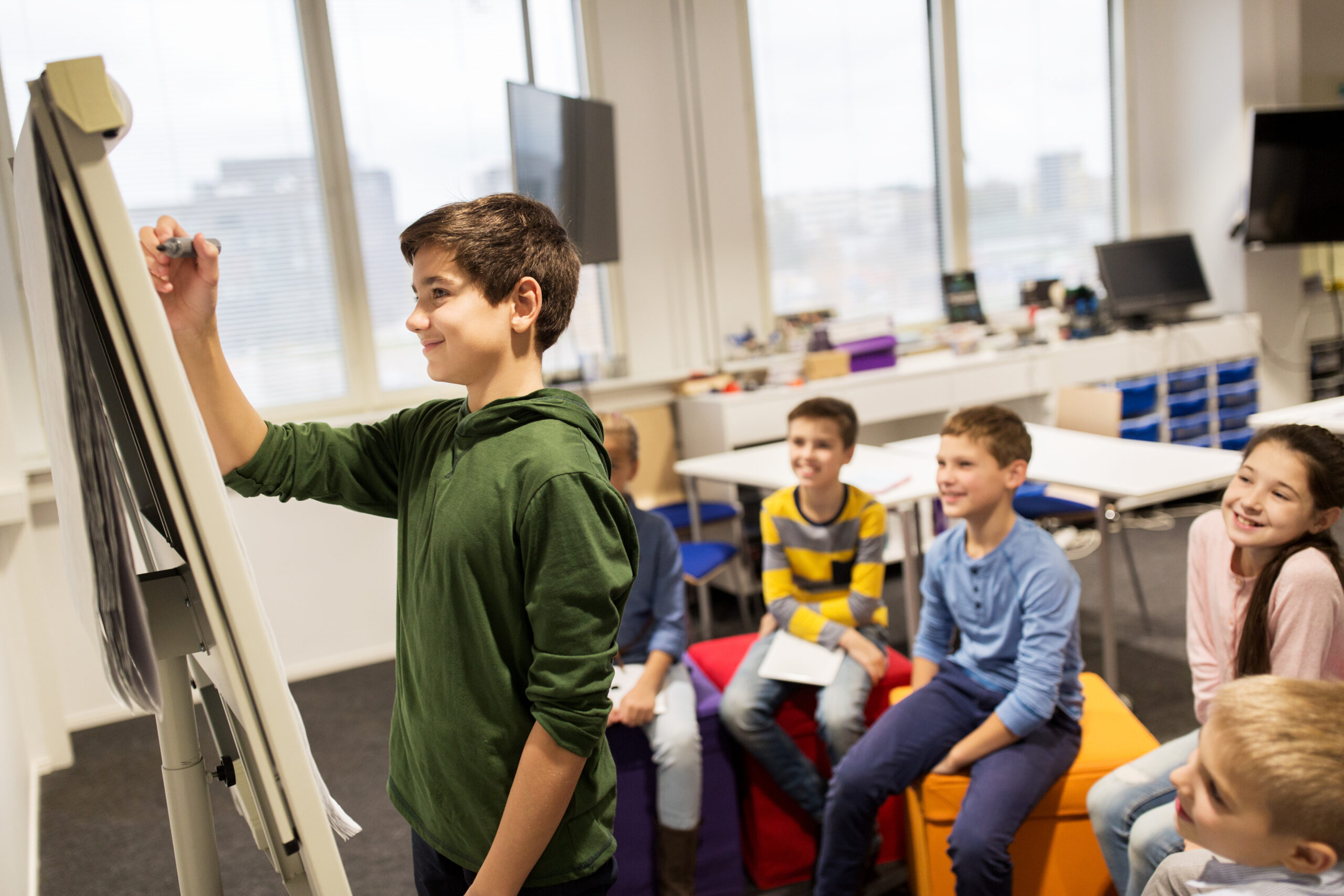
AdobeStock by Syda Productions
<h2><span data-contrast="auto">A new plan to remove the practice of streaming from Aotearoa New Zealand’s schools was launched in Christchurch on Monday by Kōkirihia, a collaboration of key education agencies. </span><span data-ccp-props="{";201341983";:0,";335559739";:160,";335559740";:259}"> </span></h2>
<p><span data-contrast="auto">Research done in New Zealand and internationally shows that streaming can both create and reinforce inequity. by broadening divides in achievement and self-confidence between streams. </span><a href="https://www.tandfonline.com/doi/full/10.1080/0305764X.2018.1441372" target="_blank"><span data-contrast="none">The evidence also shows this divide widens class and racial divisions</span></a><span data-contrast="auto">. In New Zealand, Māori and Pasifika ākonga disproportionately bear the brunt of this inequity. </span><span data-ccp-props="{";134233117";:false,";134233118";:false,";201341983";:0,";335551550";:1,";335551620";:1,";335559685";:0,";335559737";:0,";335559738";:0,";335559739";:160,";335559740";:259}"> </span></p>
<p><b>Read the Term 1 edition of <i>School News</i> <a href="https://www.schoolnews.co.nz/latest-print-issue/" target="_blank" rel="noopener noreferrer" data-auth="NotApplicable" data-safelink="true" data-linkindex="0">HERE.</a></b></p>
<p><span data-contrast="auto">Studies have shown that streaming reinforces stereotypes. In New Zealand, </span><a href="https://www.stuff.co.nz/national/education/122474432/mori-high-school-students-unfairly-streamed-in-lowability-classes-report-finds" target="_blank"><span data-contrast="none">Māori students are underestimated</span></a><span data-contrast="auto">, and Pākehā children are overestimated in all levels of schooling. This low estimation of Māori students causes them to be disproportionately represented in lower streams, despite their actual achievement. Once in a lower stream, coursework is more basic and less challenging, leading to disengagement and essentially creating a self-fulfilling prophecy as students in lower streams had no clear pathways to higher achievement.</span><span data-ccp-props="{";201341983";:0,";335559739";:160,";335559740";:259}"> </span></p>
<figure id="attachment_25576" aria-describedby="caption-attachment-25576" style="width: 2560px" class="wp-caption alignnone"><img class="size-full wp-image-25576" src="https://www.schoolnews.co.nz/wp-content/uploads/2023/03/AdobeStock_332736516-scaled.jpeg" alt="" width="2560" height="1707" /><figcaption id="caption-attachment-25576" class="wp-caption-text">AdobeStock by Anchalee</figcaption></figure>
<p><span data-contrast="auto">In the report “Kōkirihia &#8211; The plan for removing streaming from our schools”, evidence was collated about the effect of streaming on our ākonga. The report states that streaming happens as early as Primary school, creating “harmful fixed-ability groups for subjects such as maths and reading. One in these groups, whether it be the top or bottom group, this is where they are likely to stay for the remainder of their primary and secondary education.” The report states that tamariki may be streamed, and therefore have their futures fixed, from as young as six years old. In addition to the harms caused to those in lower streams, ability grouping has little positive effect – even the benefits for top achievers are minor. </span><span data-ccp-props="{";201341983";:0,";335559739";:160,";335559740";:259}"> </span></p>
<p><span data-contrast="auto">In October 2022, PPTA Te Wehengarua unanimously voted to end streaming in Aotearoa by 2030. In New Zealand, streaming is still widespread, and has one of the highest rates of ability grouping in the OECD despite the growing evidence of its harms. </span><span data-ccp-props="{";201341983";:0,";335559739";:160,";335559740";:259}"> </span></p>
<p><span data-contrast="auto">Kōkirihia is a project designed to show the whakapapa of streaming, generate awareness of the issue, showcase alternatives and set out key action points to achieve the goal of de-streaming by 2030.</span><span data-ccp-props="{";201341983";:0,";335559739";:160,";335559740";:259}"> </span></p>
<p><span data-contrast="auto">The project is led by Tokona te Raki with support by the Ministry of Education and is endorsed by the Mātauranga Iwi Chairs Group (MILG). </span><span data-ccp-props="{";201341983";:0,";335559739";:160,";335559740";:259}"> </span></p>
<p><span data-contrast="auto">The programme’s design team came together in 2021, and includes the expertise of key agencies such as the Education Review Office, CORE Education, PLANZ, NZEI Te Riu Roa, PPTA Te Wehengarua, NZQA, Cantebury University, the University of Auckland and school principals and rangatahi.</span><span data-ccp-props="{";201341983";:0,";335559739";:160,";335559740";:259}"> </span></p>
<blockquote>
<p><span data-contrast="auto">“Streaming or ability grouping is so ingrained in our teaching practice that it has becoming largely invisible and widely accepted,” said Piripi Prendergast, Project Lead for Tokona te Raki. </span><span data-ccp-props="{";201341983";:0,";335559739";:160,";335559740";:259}"> </span></p>
</blockquote>
<p><span data-contrast="auto">“Māori and Pacific students are more likely to be incorrectly placed in bottom groups and classes, and it damages self-esteem and confidence and limits career pathways,” added Dr Hana O’Regan, Lead technician, Mātauranga Iwi Chairs Group/CEO CORE Education Tātai Aho Rau. </span><span data-ccp-props="{";201341983";:0,";335559739";:160,";335559740";:259}"> </span></p>
<p><span data-contrast="auto">“Access to the best possible education outcomes is the birthright of every child in Aotearoa but this is currently not the reality for many&#8230; The launch of Kōkirihia provides hope that we are padding our way toward a fair and equitable Aotearoa come the 200 year anniversary of Te Tiriti O Waitangi,” said Dr Eruera Tarena, Executive Director of Tokona te Raki. </span><span data-ccp-props="{";201341983";:0,";335559739";:160,";335559740";:259}"> </span></p>

EXCLUSIVE: Teachers used to be paid two to three times more than minimum wage workers,…
After an “overwhelming” vote to reject the latest Government offer, secondary school teachers will begin…
Second-language learning should be compulsory, says a new report from a forum bringing together academics,…
A new entitlement aimed to improve access to learning support coordinators for schools with students…
Educators have raised questions about the Ministry of Education’s new secondary school subjects, set to…
Professional learning and development (PLD) for teachers needs to be higher impact for teachers and…
This website uses cookies.